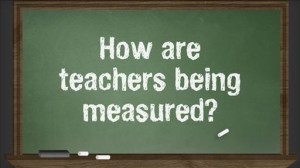[fusion_builder_container hundred_percent=”yes” overflow=”visible”][fusion_builder_row][fusion_builder_column type=”1_1″ background_position=”left top” background_color=”” border_size=”” border_color=”” border_style=”solid” spacing=”yes” background_image=”” background_repeat=”no-repeat” padding=”” margin_top=”0px” margin_bottom=”0px” class=”” id=”” animation_type=”” animation_speed=”0.3″ animation_direction=”left” hide_on_mobile=”no” center_content=”no” min_height=”none”]
During my first two years teaching I have to admit that I often thought of myself as a bad teacher. But fortunately I had an incredible mentor in my instructional facilitator, Ms. Hampton. When I had a bad observation, she gave me constructive feedback and encouraged me to improve my teaching with specific advice targeted at my weaknesses. And when I had a good observation, guess what; she did the same thing! Her coaching prowess showed itself when I was rated as a level four (out of five) teacher through our district’s evaluation system in my first year teaching.
Regardless of my performance, Ms. Hampton never viewed me as a finished product. To her, I was always a work in progress who had the potential to continually improve my craft. She embodied what I think our teacher evaluation systems should seek to accomplish. They need to help struggling teachers improve and push good ones get better.
Too often, however, these systems are used solely as a sifting and winnowing tool to separate the “good” from the “bad.” Evaluations are used to fire “bad” teachers while doing little to push the “good” to improve our craft. And when we do receive feedback through these systems, it’s not as helpful as Ms. Hampton’s. More often than not it comes in the form of a static designation like “effective” or “ineffective,” or in one-off salary bonuses. While both of these types of feedback have some utility for the education profession, they do little to help individual teachers improve our craft.
This begs the question; why are teacher evaluation systems designed this way? I believe that by in large American teacher evaluation systems are based on a false notion of teacher ability that’s been around as long as our public education system – the myth that teaching is a gift that some have and some do not. This idea pervades our society and governs the way we think about our country’s teachers.
Fortunately, research is dispelling this myth and demonstrating that teaching is not a gift, but is in fact a skill to be nurtured and developed in teachers over time. Educators like Doug Lemov have identified common techniques of great teachers and codified them so that they can be replicated by others. Writers like Elizabeth Green of Chalkbeat have begun promoting research at schools like Michigan State and Stanford that suggests that teacher is an acquired skill, rather than an innate talent.
This mindset shift suggests that instead of using evaluation systems to sort teachers by a static measure of effectiveness and designating them “good” or “bad”, teachers should all be viewed as works in progress that carry within them the potential to someday become a great teacher. Adopting this new mindset carries with it two profound implications for how teacher evaluation systems should be used in America.
First, it suggests that we need to stop using teacher evaluation systems primarily for removing “bad” teachers. Indeed, it suggests that we drop the moniker “bad” all together! Instead, we need to use evaluation systems to help struggling educators improve. If it’s true that teaching is a skill to be learned, then the primary purpose of teacher evaluations should be about supporting teachers and helping them continually grow in their abilities.
Make no mistake – I’m not advocating for rubber rooms, the dance of the lemons or making it impossible to fire a teacher with a consistent track record of poor performance. What I am advocating for is a system that views teachers as, well, teachable. We all have the capacity to improve and should never be viewed as a finished product.
Second, it suggests that our evaluation system must be designed to push our best teachers to new levels of excellence. Great teachers also need continual development just like struggling teachers, but all too often opportunities like this don’t exist for great teachers. To fix this we need to couple our evaluation systems with new pathways for growth like teacher career ladders to give our best teachers new outlets for their skills.
There’s also a financial incentive to adopting this new mindset for teacher evaluations. It costs thousands of dollars to replace struggling teachers, some places as much as $17,000 per teacher! By contrast professional development costs about half that. If we consider that thousands of teachers leave the profession every each year in America, it should be apparent that our existing evaluation policies are costing us millions annually that could be better spent elsewhere.
Using evaluation systems to help teachers improve rather than removing and replacing them isn’t just a good idea philosophically – it can help alleviate some of the difficulties faced by cash-strapped districts across the country.
I do sincerely believe that we need to reform the way we evaluate teachers in America. We need a system that includes multiple measures of accountability including student performance (though what that looks like should be open to debate), classroom observations and measures of content knowledge. But the idea that great teaching can be taught carries with it profound implications for the way that we use evaluations in America. We need to stop targeting our systems towards removing bad teachers and start talking about growing all teachers. This is going to require a mindset shift on the part of policy makers and the public, but it’s a mindset shift that could transform teaching and student learning in our country. For the sake of our kids, we can’t afford not to adopt it.[/fusion_builder_column][/fusion_builder_row][/fusion_builder_container]



Leave a comment